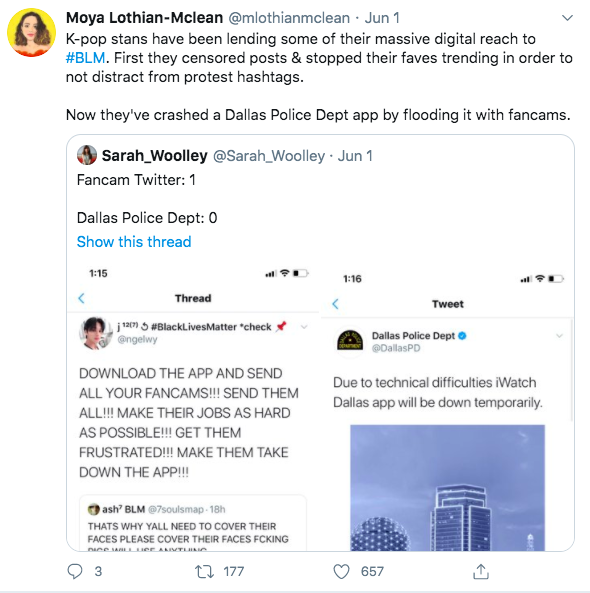The politics of K-pop fandom:
How do K-pop fans become activists
I will have to admit that I was a huge consumer of K-pop as a teenager, and I used to be a supporter of several K-pop artists, like TVXQ and 2 PM. The way K-pop fans interact with their idols – in Korea, we use this term to describe ‚artists‘ or ‚bands‘ – is somewhat strange and unique. K-pop fandoms usually have their own name, for instance, ‚ARMY‘ is a fandom of BTS, and ‚BLINK‘ is a fandom for the group Blackpink. I remember that I joined a huge online fan community of TVXQ as a teenager, and the name of the fandom was ‚Cassiopeia‘. As far as I remember, the fandom system is quite hierarchal and is requiring a lot of commitment. As an individual fan, you have to show your dedication to the fandom, oftentimes, in a quantifiable way, to be recognized in the fandom and have more access to certain fan contents.
Does K-pop root in collectivism of Korean society?
This commitment would include buying the albums, usually multiple ones, streaming the music, and voting for the idols so that they can have a higher rank in the music charts or win awards. As a fan, you feel the strong sense of community and at the same time, the responsibility to build positive images for the artists and keep them successful and popular. The fandom would donate money and foods, on behalf of K-pop idols‘ names to the people in need, to attract positive press regarding them. I reckon that deeply rooted collectivism in Korean society played an important role in this fandom culture in the K-pop world.
Why am I talking about this? Because I believe there is a linkage between this tradition in Korean fandoms and the recent political activities of K-pop fans in the US. As you might have heard and read about already in this blog, K-pop fans and TikTok users claimed tickets of Donald Trump’s rally and didn’t show up which end up leaving hundreds of seats empty.[1] For the Black Lives Matter movement, K-pop fans disrupted racist hashtags, posts on social media by posting random K-pop images and videos. When BTS donated 1 million dollars to the Black Lives Matter, with the #MatchTheMillion hashtag, the fans have raised more than a million dollars for the BLM[2] in 24 hours.
In K-pop a fan is not a fan
It might not be accurate to describe K-pop fans in South Korea as politically engaged as the international ones as K-pop industries tend to take an apolitical stance and the artists are often silent about political issues (I will talk about this in the next articles). However, as K-pop expands its audience globally, it attracts many fans consisted of Black, Latinx, people of color, and LGBTQ. It is partially because K-pop is perceived as somewhat alternative than western-centric and white mainstream culture. For example, many K-pop idols show gender-fluid makeup and fashion style. K-pop fans around the globe, who are young and open-minded enough to explore other cultures, are therefore more likely to be socially engaged.

Obviously, K-pop industries have a long way to go in terms of cultural sensitivity and political engagement, especially due to racial homogeneity and lack of diversity education in South Korean society. K-pop industries also need to recognize that K-pop itself is deeply rooted in African American music[3]. However, it is a crucial point to understand why K-pop is so appealing to a certain group of people, who are progressive, and who are tired of western-centric media contents.
Sources:
Article picture: Reuters Photo “Empty seats in the Trump Rally at the BOK Center arena in Tulsa, Oklahoma”
[1] https://www.theguardian.com/us-news/2020/jun/21/trump-tulsa-rally-scheme-k-pop-fans-tiktok-users
[2] https://fortune.com/2020/06/08/how-bts-fans-raised-1-million-in-24-hours/
[3] https://www.facebook.com/ajplusenglish/videos/319127582749313/

